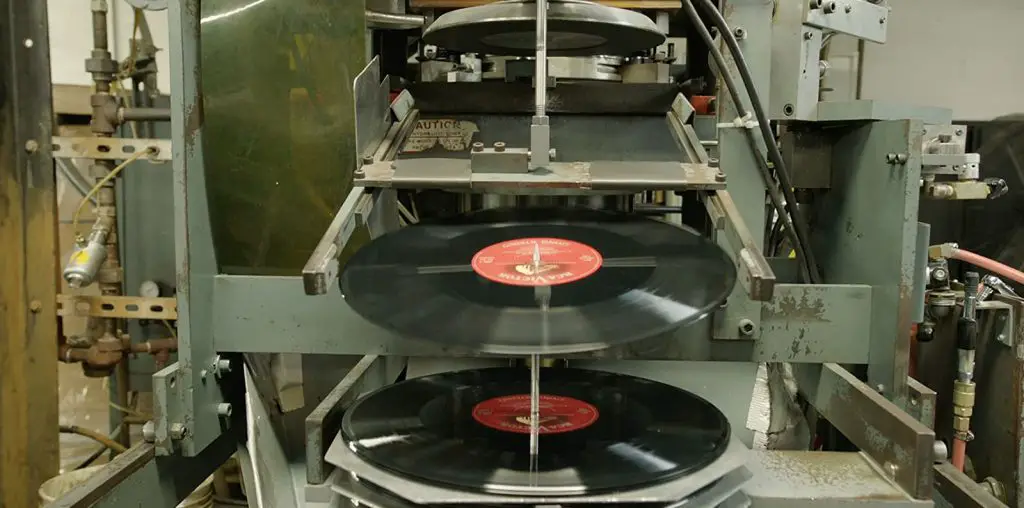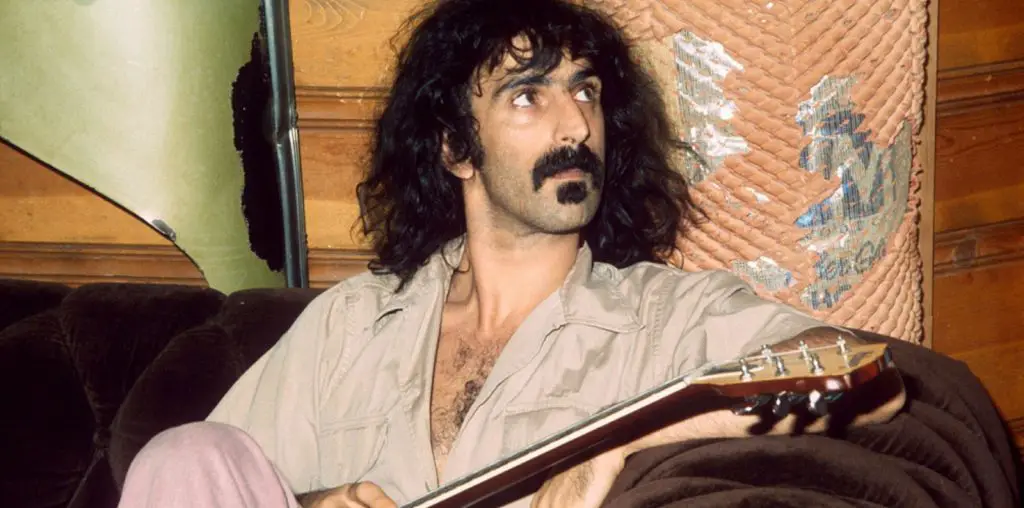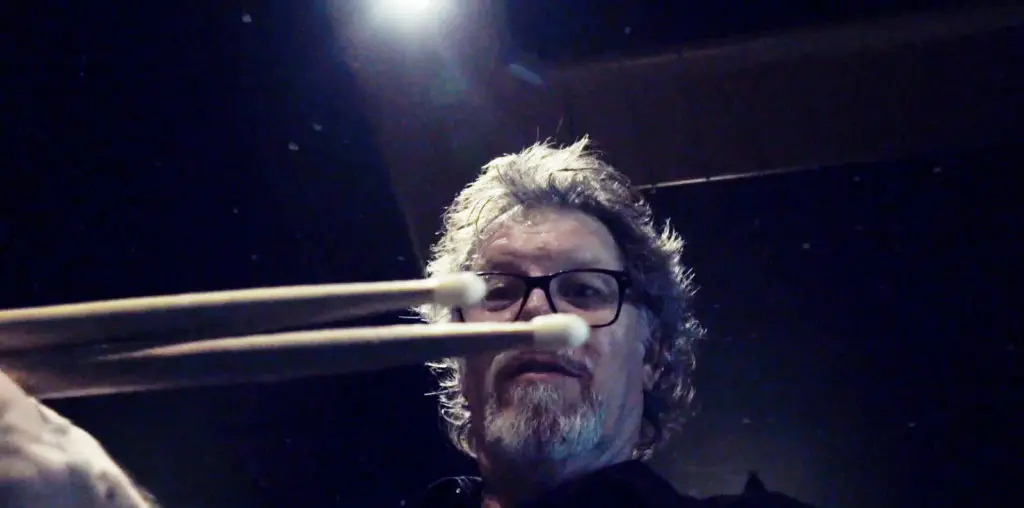
Formed in 1969, King Crimson’s eclectic blend of jazz, metal, psychedelic, and progressive rock has garnered legions of cult-like fans for generations. Documentarian Toby Amies looks at the band 50 years on from their debut and focuses on the here and now. What’s leader Robert Fripp and his new band of disciples doing? Where is the band headed in the 21st century? What is it about King Crimson that garners such devotion? All these questions surface in the all-access rock n’ roll documentary In the Court of King Crimson: King Crimson at 50.
Fifty years of touring, lineup changes, and sonic experimentation have been the legacy of King Crimson. It’s not uncommon territory for a rock band with such tenure and far from a familiar premise for a documentary. Yet, legacy or the “good old days” is hardly the subject here. Instead, Amies allows the members to discuss what King Crimson is now. He asks the musicians to elaborate on their musical philosophies, journies to King Crimson, and relationships to the man himself, Robert Fripp.

“…what King Crimson is now.”
Leader and sole original member Fripp believes the band is in its best iteration. Much of the film focuses on his discipline towards his art and his vision of King Crimson’s future. Brief moments In the Court of King Crimson: King Crimson at 50 talk about the band’s history and legacy. The film always centers back on how each lineup change or musical choice brought the band to touring. There are moments when past members weigh in on Fripp’s leadership style, sometimes even airing a few grievances, but it never feels too gossipy. Instead, each interview creates a more complete picture of King Crimson’s evolution and perception of Fripp among past and present bandmates.
The soundtrack is almost a given in any rock n’ roll documentary. Great concert footage and behind-the-scenes songwriting are things any viewer expects. While the film features tons of jam session footage and rehearsal improvisation, it is surprising how little concert footage is available. However, this lack of footage is possibly due to Fripp’s strict “no photos, videos, or phones” rule. Entire songs are rare in the film, but it does nothing to diminish the sheer amount of music presented in the 90-minute runtime. Beyond the music, the presence and energy of the late Bill Rieflin are among the best moments, making the group’s eccentric admiration understandable even to the uninitiated.
In the Court of King Crimson: King Crimson at 50 is not an exploration of what was or who the band used to be, but rather a voyage into their present and future. Newcomers to King Crimson could get lost. But there is no better film for the lines of devotees who pack into crowded concert halls to see them repeatedly. Rieflin’s story is moving, Fripp’s continued routine is incredible, and fans will love seeing the hours of methodical practice that goes into creating such a memorable show. This is made for the Blu-ray shelves of King Crimson’s many devotees and never shies away from that.

"…not an exploration of what was or who the band used to be, but rather a voyage into their present and future."


